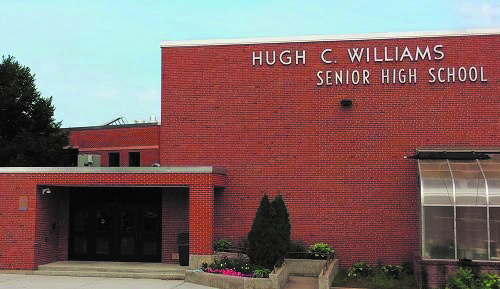Canton Central High School to Sustainably Dispose of Food Waste
Canton Central High School has teamed up with Clarkson University in Potsdam to become more environmentally friendly.
In order to curb food waste heading to the local landfill from the high school cafeteria, any scraps collected after students are done with their meals will be sent to the Cornell Cooperative Extension of St. Lawrence County. The extension is just a few minutes down the road from campus on Route 68 before the St. Lawrence Sustainability Farm Site.
Lexi Hebb, a member of the high school’s environmental club, encouraged her peers to use the program beginning at the school and stated in The Watertown Daily Times, “This project is only for food. If you can eat it and are considering throwing it away, put it in there.”
Students will dispose of any food waste in clear plastic bins labeled for composting after they finish breakfast or lunch. From there, collected waste will be sent to the Cornell Farm, where they house an anaerobic digester system that is operated by Clarkson professor Stefan Grimberg and his students.
When interviewed about the project in The Watertown Daily Times, Grimberg stated, “If it really takes off and the students do a good job separating food from things like plastic forks, it may be possible to start taking the food to a local farm that has a larger digester, such as Greenwood Farm.” The growth of the program could lead to expansion into the middle and elementary schools in Canton.
According to the Anaerobic Digestion and Bioresources Association, “anaerobic digestion is the simple, natural breakdown of organic matter into carbon dioxide, methane and water, by two groups of microorganisms, bacteria and archaea.”
At the end of the process, there is a mixture of methane and carbon dioxide gasses (biogas), water, and some organic material (digestate). The biogas can be used to produce heat and electricity. Methane can be used for vehicle fuel or be injected into the gas grid. Digestate can be used as a fertilizer, since it is a stable, nutrient-rich substance, feedstock for ethanol production, or for fibreboard, which is a building material. Water may be returned to watercourses, as it is treated during the Anaerobic Digestion process.
Concerning composting on St. Lawrence’s campus, Andrew Nicolais ’20, former member of the environmental committee for Thelmo, stated that “we’re definitely making steps in the right direction with the compost bins in each trash room on campus, but there is still a lot the university could do. One thing we pushed for was buying an industrial composter. Right now, our compost goes to the same place the town dumps their compost and then they sell it to farmers. If we had a dedicated composter on campus, we would be able to either sell or use it on campus, and it could save the university money in the long run.”
While many on campus are thrilled to see local schools taking steps to become more sustainable, SLU could use this momentum from the local community to invest more in a sustainable future for the university.



